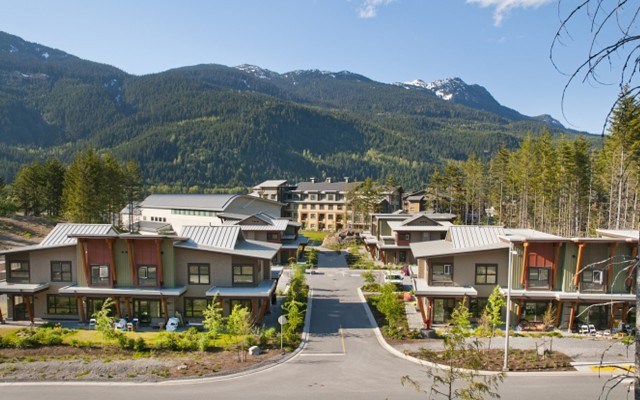While residents of Cheakamus Crossing are still grappling with the neighbourhood's District Energy System (DES)—another 11 letters from disgruntled homeowners were included in the Aug. 14 council package—council is looking at more ways to address some of the concerns with the controversial heating system.
The matter was discussed in a closed meeting on Aug. 14, said Mayor Nancy Wilhelm-Morden during the council meeting later that evening.
"Council recognizes that some residents are still having issues with their in-home systems and are seeking further information, guidance and assistance," Wilhelm-Morden said in her mayor's report. "Council discussed several potential measures that will seek to help ensure that important annual maintenance is put into place, address systems that have exhibited systematic failure, and help those interested in opting out of the system."
Council has directed staff to investigate the measures and how to implement them, and details will be shared publicly next month, the mayor said.
The state-of-the-art DES—a closed system that captures waste heat from the sewage treatment plant and pumps it into homes, assisting with ambient heating and providing hot water for household uses—was installed ahead of the 2010 Olympics.
Though the system was expected to reduce power consumption and save residents money, it has proven unreliable for many and has cost some homeowners thousands in repairs.
PARKING FINES SET TO GO UP
Parking fines in Whistler are about to go up.
At its Aug. 14 meeting, council gave first two readings to a bylaw that will increase the base fines for parking violations from $20 to $35.
"The fines have increased modestly to ensure compliance with the regulations, parking availability, and to ensure fines are higher than the daily parking rate in some areas," said planning analyst Kevin Creery in a presentation to council.
After 14 days, fines will increase to $70 (instead of the current $65).
Staff based the new fines (Whistler's first increase since 2001) on comparable jurisdictions like North Vancouver, Squamish and Tofino.
Parking bylaw penalties will also be added as a schedule into the Bylaw Notice Enforcement Bylaw, allowing parking officers to write parking tickets as bylaw notices.
Q2 FINANCIALS PRESENTED
Six months into the fiscal year, RMOW operating revenues were at 82 per cent and expenditures 49 per cent of annual budgeted amounts, according to a report to council on Aug. 14.
"This compares to 91 per cent and 48 per cent, respectively, in the prior fiscal year," said acting director of finance Maureen Peatfield, noting that a significant amount of revenue is accounted for by midyear due to property taxes. "Most revenue line items are about the same or slightly more than the prior year with the exception of RMI and MRDT (hotel tax) and other revenue."
RMI and MRDT revenue is significantly higher this year, as the RMOW received $3.43 million of its RMI funds in April rather than a lump sum in November.
The RMOW is also seeing revenue rising in a number of other areas, including day-lot parking (up $397,000 over 2017 due to the introduction of pay parking in lots 4 and 5), recreation program admission (up $65,300—$32,400 of which was from increased cross-country ski pass revenue) and works and service charges (up $178,300 due to strong development).
Investment income, including changes in market values, was $708,827 (unadited).




